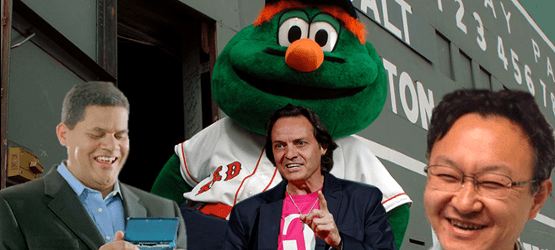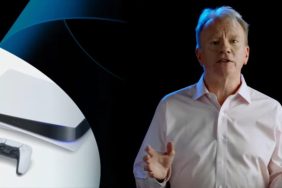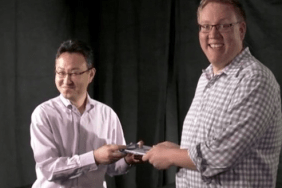The way I see it, there are approximately three to four slots a company can occupy in the perception chamber of a given consumer’s brain. The first is the largest, and the most difficult to escape from: the “evil” slot. This slot is reserved for entities that, by most folks’ accounts, engage in activities aimed to boost profit regardless of negative consumer side effects. Businesses exist to make money, yes, but if you step on consumer rights, artificially inflate prices, or overstep ethical boundaries, your PR team may have months or years of rehabilitation ahead of it. If you were to grab someone off the street in 2014 and peer into this aforementioned slot, you might find the likes of Comcast, or maybe even Verizon. Like it or not, this is the public’s current opinion of these companies.
Next is no-man’s land. Now, I suspect that no-man’s land is often subconsciously divided into two sections; one negative-leaning, and one positive-leaning. Microsoft are masters of no-man’s land, and the company has skillfully remained there for much of its existence, long before Xbox ever existed. Microsoft certainly has its laundry list of borderline “evil” practices through the years — bullying afforded by its exorbitant Windows market share, recent attempts to abolish used games — but by and large, Microsoft has been able to either get away with murder or perform an about-face long before anyone but savvy, core users raise a fuss. To the average person, Microsoft is just a part of life; good or bad, they continue to release products and exist.
And then there’s Sony. Sony and its PlayStation business have exhausted the gamut since the brand’s inception, from the mystique of the original PlayStation, to the glory of the PS2, all the way to the initial frustration and confusion-turned-eventual-joy that is the PlayStation 3. Sony enraged gamers as recently as two years ago, when it revealed the bloated price tags it had attached to each and every Vita memory card. It wasn’t hard to see their reasoning, but that certainly doesn’t mean people were happy about it either.
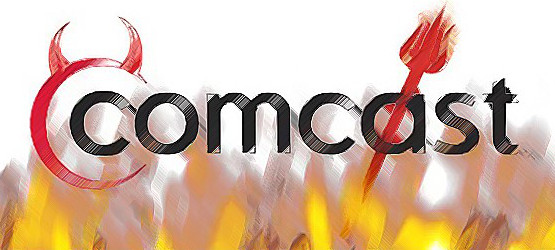
Still, PlayStation has never stumbled past the line of what I’d call a “severe honest mistake,” nor has it yet sojourned the dark place where Microsoft covertly visits and Comcast thrives. In fact, both Sony’s sales success and its image have made incredible turnarounds since the dawn of PS4, and aside from an obvious strategy shift responsible for the former, I’d attribute a good part of the latter to one thing in particular — the emergence of a new mascot. You guessed it; I’m talking about SCE Worldwide Studios president Shuhei Yoshida.
Now, to call Yoshida a new addition to Sony would be erroneous, and diminishing his role to that of a mascot alone borders on folly, but bear with me. Yoshida, despite joining Sony in 1986, has only just recently set up shop in the public eye. As a Nintendo fan who happens to also greatly enjoy PlayStation, I had never heard of the man before 2013, and that’s coming from a life-long follower of the industry. This all changed once the road to PS4 began, though, and by the time the system released, you’d have needed a metric truckload of sand to bury your head deep enough not to know his name and face. Be it the hilarious instructional video on how to share used games, his amusing replies to fans on Twitter and Facebook, or even his antics on competitors’ online services, Yoshida’s reputation as a relatable goofball now officially precedes him.
That last sentence could have ended with “for better or worse,” except for one problem; there’s no convincing argument that Yoshida’s ascension to superstar-status amongst gamers has been anything but a huge boon for PlayStation’s image. It’s hard to pinpoint where and why it took off, but I suspect it has a lot to do with most gamer’s base desire to have someone with power fighting for them. Gabe Newell is beloved, and though his accomplishments are tremendous, it’s not his sparkling LinkedIn page that puts him on a near-holy pedestal. It’s because nearly everything he does at Valve, day in and day out, aims to make things more convenient, less expensive, or downright better for gamers. He’s responsible for some of the most respected games of all time, too. There’s also that. The track record of folks like Newell speaks for itself.
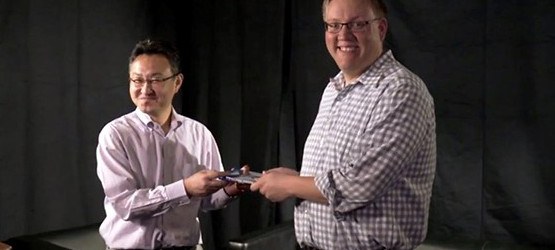
Still, there’s another element to this mascot business, and despite Sony’s runaway PS4 success so far, the company hasn’t exactly revolutionized much; at least not yet. In a temporary bout of greed and poor judgement, Microsoft thought it could topple the sharing and reselling of physical games. Sony needed simply to uphold the status quo to look like heroes, and look like heroes they did. Probably more than they ever imagined. Despite its remarkable outcome, the initial blunder by Microsoft wasn’t terribly difficult to capitalize on.
What is tough to capitalize on, though, is doing the right thing, and that’s where Yoshida and the PlayStation crew passed with flying colors. It was actually Jack Tretton who broke the good news on used games at last year’s E3 (namely, the fact that Sony would continue to allow them), and as mentioned earlier, Yoshida and colleague Adam Boyes whipped up a biting satire in the form of a mock instructional video. Call it fanboy wars all you want, but the satisfaction Sony faithful reaped from such an act runs much deeper than the petty mudslinging found in game-blog comment sections. As a New York Giants fan, I stand up and cheer when my team scores a touchdown. When Victor Cruz breaks into a full-on salsa dance, I pump my fist twice as hard. The instructional parody was Yoshida and Boyes’ salsa dance, and there’s absolutely no shame in chest-bumping your buddies after it happened.
So what, specifically, has propelled Yoshida and folks like Adam Boyes to such astronomical heights of popularity? I suspect it boils down to a healthy dose of targeted, unfettered moxie. Ironically enough, it’s Nintendo who popularized this strategy (and subsequent trend) almost ten years ago with the emergence of a new VP of Sales and Marketing at E3 2004. The Japanese giant was suffering at the hands of its own “kiddie” image more severely than ever (these were the purple lunchbox days, remember), and Reggie Fils-Aime’s proclamation that he aimed to “kick ass and take names” was just the PR jolt the company needed. Accident or not, the strategy has since spread throughout the company; similarly hilarious antics by CEO Satoru Iwata pervade most Nintendo Directs, and even guys like Bill Trinen from the humble Nintendo Treehouse have been made into minor gaming celebrities.
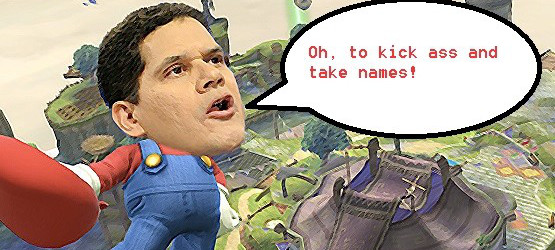
Giving big execs a personality consumers can connect with has proven effective time and time again, and it’s not just limited to gaming. Anyone who follows tech and wireless news is no-doubt aware of what T-Mobile CEO John Legere has done for the fourth largest wireless carrier in just a single year’s time, and much of his charisma with fans has been the result of abundant trash talking and absurd Twitter antics the likes of which suit-and-tie CEOs would never even dream about. The point is, Mr. Legere has established himself as a larger-than-life character, and just like with my favorite athlete, film actor, or even author or studio musician, there’s an element of trust that forms. If Leonardo DiCaprio is performing in a film, I know I’ll enjoy it, because he’s built that trust with his fans. As long as John Legere is at T-Mobile, I feel comfortable that my interests will be protected, because it’s happened time after time. If Shuhei Yoshida were to leave Sony tomorrow, I’d be highly alarmed, but as long as he remains, I can rest easy knowing the PlayStation ship will be kept relatively on course. I won’t have to analyze every scrap of Sony news to make sure The Man isn’t trying to screw me, and I won’t have to sleep with one eye open to keep watch over my stack of secondhand games. It’s comforting, and the longer it continues, the more that comfort will spread through gamedom like wildfire.
It’s almost a bit funny; despite his bombastic inauguration nearly 10 years ago, Mr. Fils-Aime has mellowed. The trust he’s built remains, but he doesn’t seem to be kicking much of anything lately, nevermind the backside of the competition. And strangely, the timing seems almost perfect. Industry personalities move in cycles, and when I watched the video of Sony’s Morpheus presentation at GDC, I felt strangely at ease. Yoshida joked about the cryptic-ness of the event’s invitation, and how the audience had “no idea” what he intended to talk about. It was almost as if I were enjoying a presentation from a company I care about, without stressing over said company’s well being. It was rare, and it was relaxing.
Sony’s current stable of execs may not be built from the ground up to kick ass and take names, but I get the feeling they may be on to something better. A blast of aggression and industry shake-ups can make for effective marketing at first, but it’s a strategy where excitement can quickly and easily wane. Yoshida and his team are smart, they have decades of experience, and when push comes to shove, they’re a group that knows how to execute with such poise and efficiency that there’s even time left for comically unsubtle jabs at the competition. If that’s not the corporate definition of “style points,” then I don’t know what is.

It’s strange how the term “fan” is seen as positive, and is associated with devotion, while “fanboy” has become a biting insult that denotes immaturity. Sometimes I have a hard time understanding the problem with either. If Sony were to sell foam fingers at this year’s E3, I’d gladly snap one up and wave it through the air from their press conference’s front row. At the end of the day gamers don’t ask for much, and if the folks in charge can cause me to jump from my seat in excitement, chuckle at their amusing remarks, or even just prove to me they’re not built from wires and stainless steel, I can’t really imagine being more content. If I can rest easy knowing a corporate entity will actually look out for my rights, privileges, and wallet, well, that’s just icing on the cake.
Oh, and one last request to management: keep shifting record amounts of PS4 hardware, would you? That’d be great. Oh, and we should meet up for drinks sometime too. What, we’re not actually pals in real life? My apologies — you had me thoroughly fooled.
